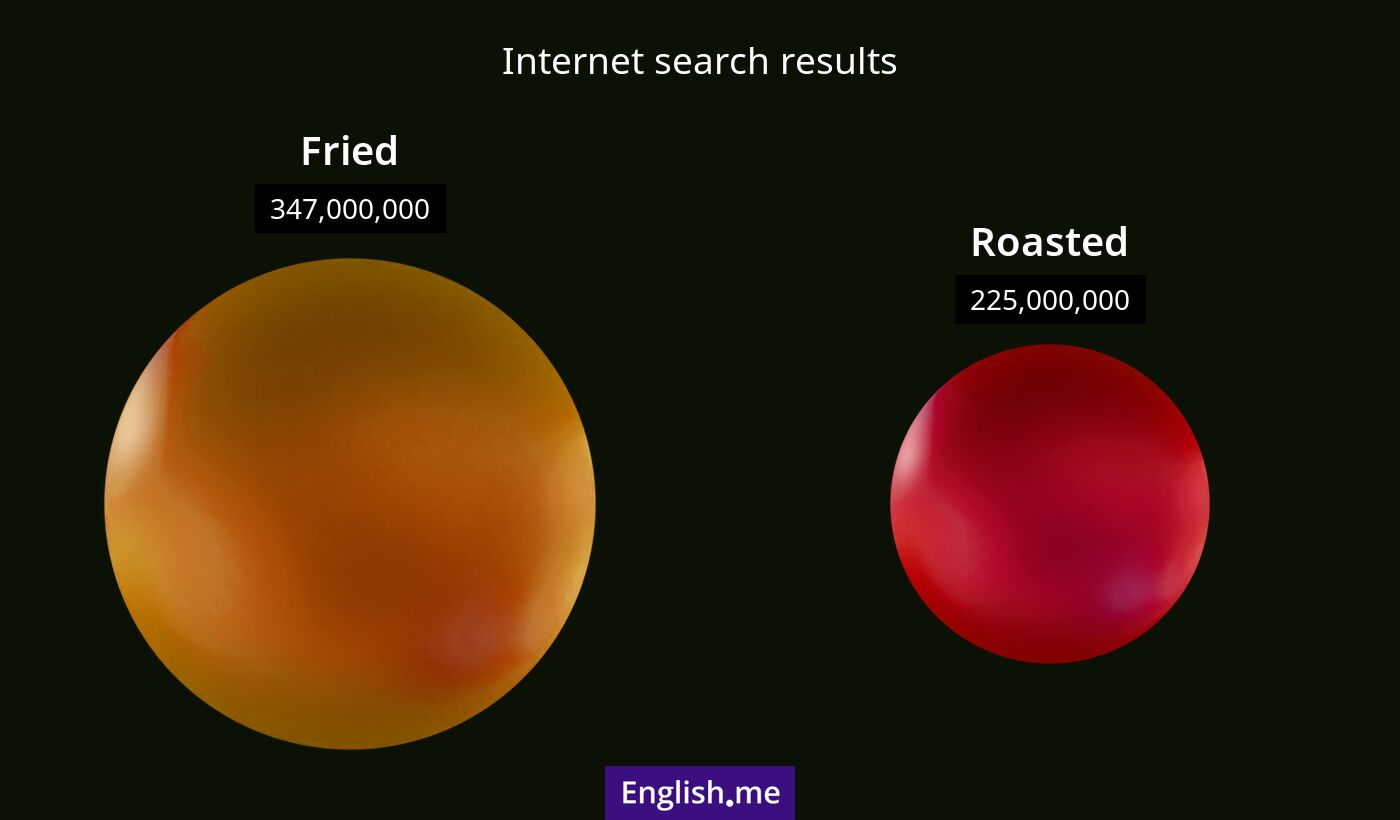Crispy conversations: "fried" vs. "roasted"
Reviewed and edited by  Anwar Kareem 13/11/2024, 06:29
Anwar Kareem 13/11/2024, 06:29
English.me team member

 What is similar?
What is similar?
Both "fried" and "roasted" are methods of cooking food using heat. They are both commonly used terms in culinary contexts to describe the process of cooking ingredients.
 What is different?
What is different?
"Fried" typically involves cooking food in hot oil or fat, often at high temperatures, resulting in a crispy exterior. "Roasted" usually refers to cooking food using dry heat in an oven or over an open flame, often at lower temperatures than frying, and it generally takes longer.
 Which one is more common?
Which one is more common?

 Examples of usage
Examples of usage
Fried- She fried the potatoes until they were golden and crispy.
- After being fried, the onion rings were perfectly crunchy.
- They fried the dough to make delicious donuts.
- He roasted the vegetables in the oven for an hour.
- The peppers were roasted over an open flame for added smokiness.
- The aroma of roasted nuts filled the kitchen.

 English
English español
español française
française italiano
italiano deutsche
deutsche 日本語
日本語 polski
polski česky
česky svenska
svenska Türkçe
Türkçe Nederlands
Nederlands